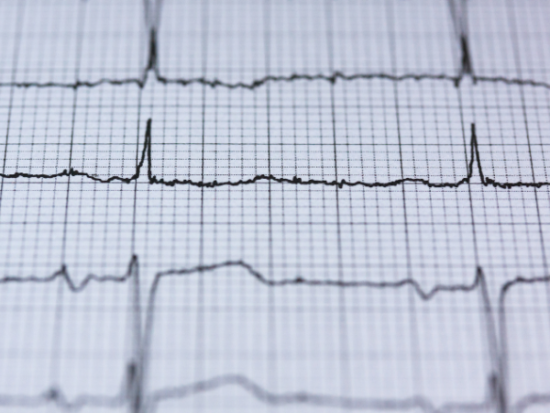How to slow heart rate
Want to know how to slow heart rate? Heart rate reflects when you count the number of beats a person usually experiences within a minute, generally known as the pulse. Having a relatively lower heart rate symbolizes good health, making a significant contribution to the overall health condition.
With a lower heart rate, your heart can maintain a healthful rhythm and effectively respond to routine stressors. People with high resting heart rates need to learn how to slow heart rate to lead a happy and healthy life.
Tachycardia is a medical term used for fast heartbeats. A person with high heartbeats translates into the heart is working faster than usual, and such an individual is likely to fall prey to a myriad of health-related issues. The factors that can cause Tachycardia includes:
- Smoking
- Exercise
- Fever
- Hormonal Changes
- Medication side effects
- Overactive thyroid
- Sudden stress or fright
- Anemia
- Caffeinated beverages
- Alcohol
- Weather
- Imbalance of electrolytes
The target heart rates are between 60 and 90heartbeats per minute. Anything over 100 beats per minute is dangerous.
Above 90 beats are considered high resting heart rates, and you must take serious measures to lower the heart rate. It will decrease the possibility of heart attacks and strokes.
This article will walk you through how to slow heart rate by sharing some proven tips and tricks.
Related Articles
Top 5 CBD Gummies on Amazon
Best Cleanse for a Healthier Body
How to Get Instagram Followers Fast
Adopt These Habits to Slow Your Heart Rate
Following the below-listed activities will help you normalize your heart rate. Having done so can keep the complications associated with a fast heartbeat at bay.
Exercise Frequently
Plenty of advantages are connected with exercise. Exercising regularly is deemed to keep you fit and healthy both physically and psychologically. Lowering the target zone of a heart rate is one of the most significant benefits of making a habit of daily exercise. It also helps with dealing with other ailments such as running short of breath and losing weight.
Albeit exercise is expected to increase the heart rate. It usually takes the level to the maximum heart rate. However, a continuous workout of moderate-intensity trains your heart to be stronger and adept at pumping blood to the rest of your body organs. It ultimately helps you maintain a standard heart rate relatively quickly.
Consume More Seafood
Adding fish to your diet reduces the heart rate and helps you prevent heart strokes. The omega-3 fatty acids in fish such as mackerel, salmon, sardines, tuna, and herring function as a heart-healthy ingredient and keep the heartbeats regular.
As per the researchers, fatty acids are likely to stabilize heart cells’ electrical activity, which is vital for lowering heart rate. Some other health benefits of cramming up fish entail;
- Lower your risk of heart strokes and attacks
- Provide nutrients that crucial during the period of development
- Boost brain health and lower rates of mental decline
- It can help you prevent and treat depression
- A substantial source of vitamin D
Related Article: How to Make Corned Beef
Stop Smoking
Do you want to crack the puzzle and get to know how to slow heart rate?
Say goodbye to tobacco. Simple as that.
There are myriad reasons your heart health will improve once you quit smoking. Soon you inhale smoke, your blood pressure along with heart rate shoot up. Once you stop lighting up, you will start noticing the significant impact on your overall health condition within the next two to three weeks, especially heart rate.
Besides increasing the heart rate, smoking damages your health in many other ways, such as;
- Weakens your immune system
- Weakens your bones
- It fills your lungs with tar
- Increases clotting
- Clogs your arteries
Carbon monoxide and some other poisonous gases enter your body when smoking and then penetrate your bloodstream.
Next, it steals the oxygen from your red blood cells. The remaining minimal amount of oxygen goes to your organs and other tissues. It ultimately translates into hard and stiff artery walls, enhancing the chances of a heart attack.
Related Article: Best Smoothie Bowl Recipes to Make
Limit Caffeine
It is generally believed that caffeine intake helps us when we are tired and increase our brain’s activity, ultimately increasing alertness and reducing tiredness. However, caffeine’s negative impact on our health, especially the heart rate, tends to be much more than these short bouts of alertness.
Blood pressure is a significant predictor of heart attack and stroke.
Caffeine increases blood pressure and the risk of heart attack and stroke. Consuming too much caffeine may also lead to these problems;
- Insomnia
- Headaches
- Dizziness
- Anxiety
- Dehydration
- Abnormal heart rhythm
- Restlessness
Related Article: Best Gifts for Coffee Lovers on Amazon
Control Stress
When stress takes control of you, your body goes into a specific mode that stimulates adrenal glands to ooze out the hormones cortisol and adrenaline. Subsequently, your heart starts beating faster, and your blood pressure shoots up. To control stress, it becomes crucial for you to know how to slow heart rate.
In case you feel these episodes more than often. It can cause inflammation in your arteries and increase the probability of heart attacks.
The undesirable consequences of stress on your health and heartbeats make it indispensable to control it. Else, stress will have a significant impact on your body, mood, and behavior. Some of them include;
- Muscle tension
- Chest pain
- Fatigue
- Anxiety
- Sadness
- Overeating/undereating
- Angry outbursts
- Social withdrawal
- High heart rate
Maintain a Healthy weight
Reaching and maintaining a healthy weight is critical for your overall health condition. It can help you avoid many diseases and health conditions. Several heart diseases, breathing problems, and high blood pressure result from obesity. Thus, a healthy weight prevents you from these health conditions.
To gain a healthy weight, focus on a long-term diet plan and get yourself into activities that promote lifelong health and well-being. To check your pulse, place your fingers on your neck and press lightly. You should feel a slight pulse pattern. You can attain a healthy weight by;
- Eating balanced meals
- Limiting TV and video games and involving in physical activities
- Avoid high calories beverages
Related Article: How many Calories Are in a Pound?
Lessen Alcohol Intake
The more alcohol you consume, the higher shall be your heart rate. If you want to know how to slow heart rate, know that drinking stimulates heartbeats and invites heart-related conditions.
Too much information about alcohol increases your chances of getting atrial fibrillation (AFib). It is a condition that makes your heartbeat go faster and likely to cause blood clots, strokes, heart attack, and several other heart conditions.
Long-term health risks associated with alcohol include;
- High blood pressure
- Heart diseases
- Cancer of breast, mouth, and throat
- Weaken the immune system
- Social problems
Stay Hydrated
Every day you lose water from your body through breath, sweat, urination, and bowel movements. To make your body function properly, you must replenish the water supply by consuming beverages and food that contain water.
Water makes up about sixty percent of our body weight, and every cell, tissue, and organ in your body needs to perform its functionalities properly.
You must ensure an appropriate water supply to your body organs, especially the heart, which pumps about 2,000 gallons of blood every day. Lack of water in your body will hamper your heart’s activities. By staying hydrated, you help your heart perform its activities smoothly and seamlessly.
Problems Associated with High Heart Rate
- Heart failure/stroke
- Low energy levels
- Blood clots
- Low physical fitness
- Weakness
- Obesity
- Chest pain
- Low blood pressure
- Reduced blood circulation
- Dizziness
- Difficulty in breathing
Related Article: How to Lose Body Fat and Gain Muscle Effectively
Summary
Keeping in mind the complications mentioned above associated with heart rate, it becomes essential for everyone to lower their heart rates. If your average heart rate is usually high, it is best to make it a habit to feel your pulse often throughout the day, talk to your doctor, and strictly follow his or her prescriptions.





